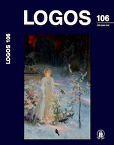Aristotelio filosofijos struktūra M. Heideggerio mąstyme
The Structure of the Philosophy of Aristotle in the Thinking of M. Heidegger
Author(s): Nerijus StasiulisSubject(s): Ancient Philosphy, Contemporary Philosophy, Phenomenology, Hermeneutics
Published by: Visuomeninė organizacija »LOGOS«
Keywords: Aristotle; authentic being; Descartes; Heidegger; presence;
Summary/Abstract: The aim of the article is to outline the main characteristics of the connection between Martin Heidegger’s thought and Aristotle’s philosophy. Heidegger finds in Aristotle’s texts the example of presence as the thinking of unconcealment. The structure of the argument between Aristotle and Antifon becomes the paradigm for the argumentative relation between the conceptions of Heidegger and René Descartes. Both the destiny of Being which has now been revealed via Cartesian philosophy and the possibility of the new thinking of Being is derived from the philosophy of Aristotle, to wit – from the twofold possibility of reading its structure. The new thinking of Being is linked precisely to the thinking of presence as unconcealment, which coincides with the eigentlich Being. The relation of Heideggerian-Aristotelian philosophy to the Cartesian paradigm is understood via the structure of the Greek distinction between alētheia and pseudos.
Journal: LOGOS - A Journal of Religion, Philosophy, Comparative Cultural Studies and Art
- Issue Year: 2021
- Issue No: 106
- Page Range: 6-13
- Page Count: 8
- Language: Lithuanian

